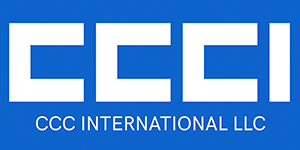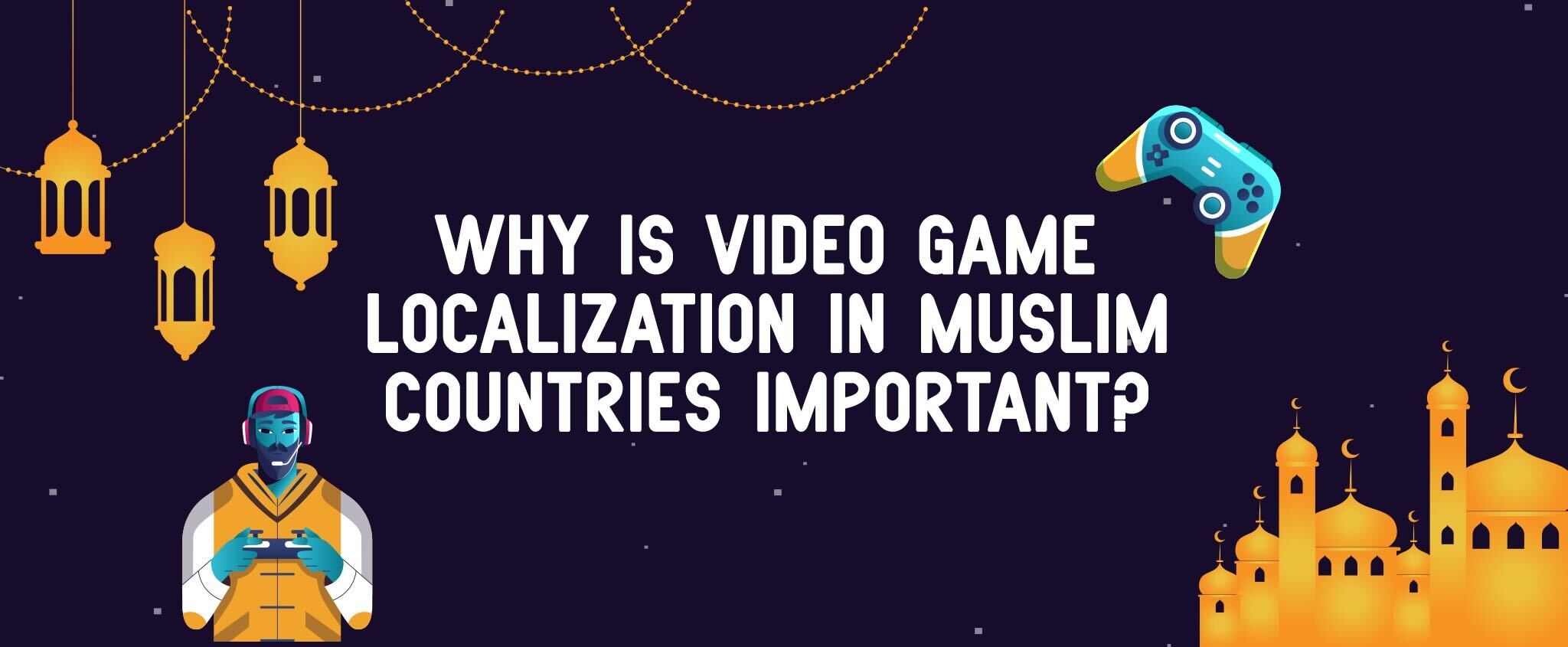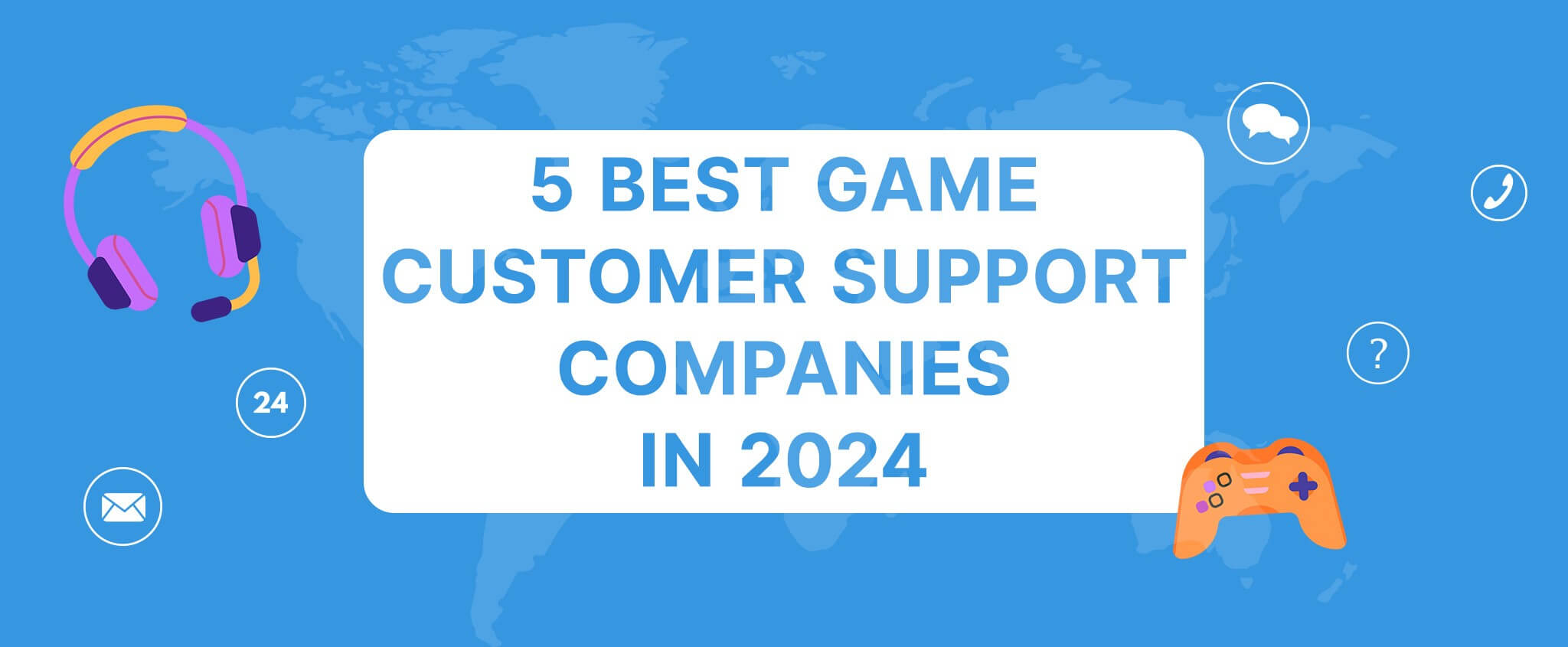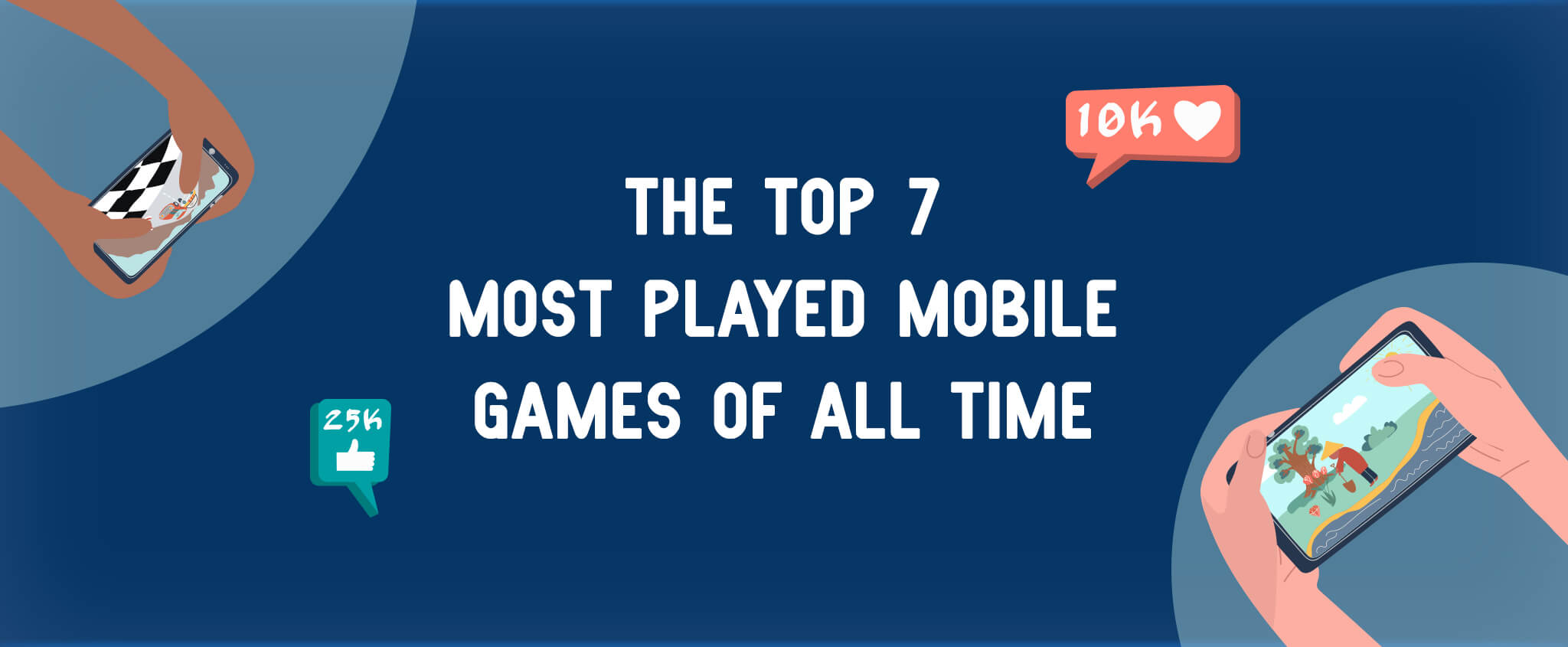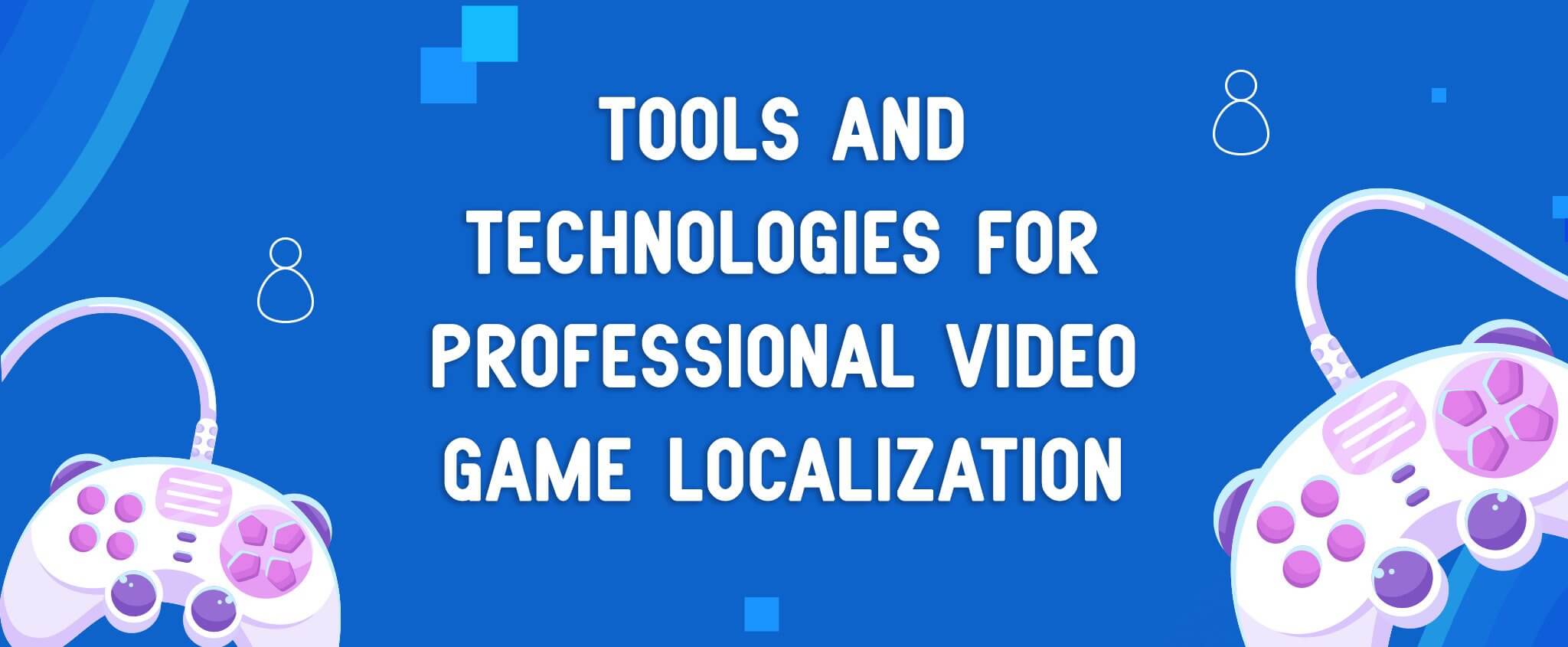Why is Video Game Localization in Muslim Countries Important?
Religion is one of society’s most powerful forces. There may be many differences between different religions, but it’s undeniable how each contributes to the culture and identity of its adherents. While all religions have specific traditions, beliefs, and practices that are unique to each faith, there is one thing that all religions share in common: a desire for respect. That’s where video game localization in Muslim countries revolves around.
Video game localization is a key factor when it comes to making video games accessible and enjoyable to the people of those countries. Why the Muslim video game culture specifically? Religion’s rich culture, history, language, and customs are intricate components that must be considered for video games to succeed. Localization can significantly affect how these games are received and understood.
Are you looking to share your game with Muslim audiences worldwide? Let’s discuss how localization can help you get there!
Key Takeaways:
- The importance of video game localization in Muslim countries cannot be overstated. Video game localization helps ensure that Muslim players can access, understand, and enjoy video games in their native language.
- Video game localization should be respectful and authentic to reach Muslim audiences successfully.
- Exploring the Muslim video game culture is a great way to gain insight into how best to localize your video game.
- Video game localization in Turkish is a significant consideration due to its popularity amongst Muslim audiences.
Table of Contents:
- Middle East-North Africa (MENA) at a Glance
- Growing Popularity of Video Games in the Middle East
- The Role of Video Game Localization in Muslim Countries
- Localization Challenges in the Muslim Game Market
- CCCI – Professional Game Localization Company
Middle East-North Africa (MENA) at a Glance
The region with the highest concentration of Muslims worldwide is Middle East-North Africa (MENA). MENA has approximately 21 countries, and 93% of its population is Muslim.
When we focus on religion, Islam differs from Christianity and other religions in many aspects, including its language and customs. And Islam in every country can also be interpreted differently, with each country having its unique view of the religion.
Some of the key economies of the MENA region are the Kingdom of Saudi Arabia, the Islamic Republic of Iran, the State of Israel, and Egypt. Generally, the region holds many investment opportunities in different industries, including gaming.
Pro-tip: Work with professional translators and localization experts who understand the Muslim culture and can help make your game culturally relevant. Only professionals know how crucial context is when it comes to translations and can help make your game more appealing to Muslim gamers.
Growing Popularity of Video Games in the Middle East
We all know that the COVID-19 pandemic increased the demand for video games as people worldwide were stuck at home. The Middle East was no exception to this trend, and the region has seen a surge in video game consumption. Video games have become more than just a hobby – they are an integral part of the culture of this region.
Video games have always been so popular in the region since Muslim audiences began to embrace them. According to Statista, the pandemic didn’t stop companies and investors from making gaming investments in MENA.
In 2021, the gaming revenue reached US$ 1.76 billion and was forecasted to reach around US$ 3.14 billion in 2025. Saudi Arabia had the highest game market value in 2021, having about US$ 680 million in revenue. Next was Iran, with approximately US$ 431 million.
If we look at the number of gamers, the region had around 65.3 million in 2021, and there’s a huge possibility that it’ll grow to 85.8 million in 2025. Shooter and sports games are two of the top genres, and games like Fortnite, Fifa, Overwatch, and Minecraft are some of the most popular games in the region. Yes, there’s a big gaming appetite in Muslim countries!
The Role of Game Localization in Muslim Countries
It’s not just about making your game available to people in Muslim countries; it’s also about connecting with them. Game developers and publishers can’t ignore the Muslim video game culture, so localization is a must if you want to tap into this vast potential market.
Localization’s purpose, in general, is to bridge the cultural gap between you and your players. For example, if your game was originally created with an English-speaking audience in mind, you’ll need video game localization in Turkish or Arabic before releasing it in Muslim countries.
Note: Localization is more than just translating the content into the target language. It also involves understanding the cultural nuances of your audience, making changes to assets, adjusting the game mechanics, and more.
You must also know that there are many languages in the MENA region. In the Middle East alone, there are over 60 languages, and some of the most spoken include:
- Persian
- Hebrew
- Turkish
- Kurdish
- Greek
Localization also goes beyond languages. It also means adjusting the gameplay to adhere to local culture and customs. For example, you may need to adjust the game mechanics, graphics, and sound to fit Muslim values – a process known as culturalization. The Islam culture is unique, and you’ll need to ensure your game fits in with the local customs.
Localization Challenges in the Muslim Game Market
You might think that localizing a game for Muslim countries is easy. But that’s not the case. Video game localization, in general, has some unique challenges. And when you add culturalization to the mix, it can be a difficult and time-consuming process.
The goal is to make your game as though it was originally made for that audience, meaning you have to be aware of all the nuances.
What challenges do you have to consider when localizing your game for Muslim countries?
Language Barriers
The language barrier is the first and most obvious challenge. As mentioned, there are many languages and dialects in the MENA region, and some of them may be unfamiliar to you. Don’t forget about formally written language, too! The key is to find a reliable partner who can help with the localization process, so your game accurately conveys the message to the local audience.
Cultural Differences and Sensitivities
Game localization for Muslim countries also involves culturalization, which means adjusting the game to fit in with the local culture and customs. This process includes visuals, sound effects, character designs, theme music, storyline – you name it. You must be aware of Muslim cultural sensitivities, such as religious references or general themes that may be seen as inappropriate.
Knowing Your Audience
When you localize for Muslim countries, you must also know your audience. Knowing the target players can help guide the localization process and ensure your game reaches the right people. This process includes age, gender, skill level, and even cultural preferences.
Right-to-Left Reading and Text Expansion
You must also consider the language direction and writing format when localizing your game for Muslim countries. English is read from left to right, while Arabic and Hebrew are read from right to left. You have to adjust the user interface and design elements accordingly.
Another challenge is text expansion. Arabic and Hebrew languages tend to take up more space onscreen than English. You may need to adjust the game’s layout, user interface, and text elements to fit within the available space.
These are just some challenges you must consider when localizing your video game for Muslim countries. When you start a localization project, you’ll realize how demanding and complex it can be. It takes time, effort, and research to ensure your game is culturally relevant and engaging to the Muslim audience.
You don’t have to allocate a huge budget for the localization process and end up wasting it because of oversights. By working with a reliable and experienced partner, you can ensure your video game reaches its intended market without going over budget or schedule.
CCCI provides a complete package of video game localization services, from language translation to culturalization. We are the partner you’re looking for!
CCCI – Professional Game Localization Company
The Middle East gaming market is definitely worth exploring, and there’s no better partner than CCCI to help you with the localization process. Our team is experienced in video game translation and localization and is committed to delivering the highest quality services. We have a wide network of experts who understand the local culture, aiming to help you make your game appealing to any target audience.
CCCI’s Arabic translation services and video game customer support also come with advanced tools to ensure accuracy and speed up the process. Game customer support is just as important as game localization. We provide native speakers to deal with customer inquiries quickly and effectively.
Whether you’re aiming for the gaming market in UAE or any other Muslim country, CCCI can help you with all your localization project needs. Let’s work together to make your video game a global success! Contact us now to learn more.
